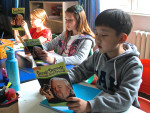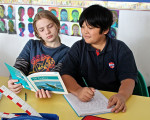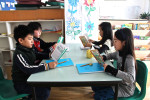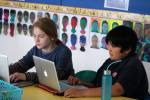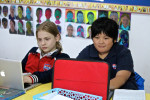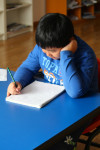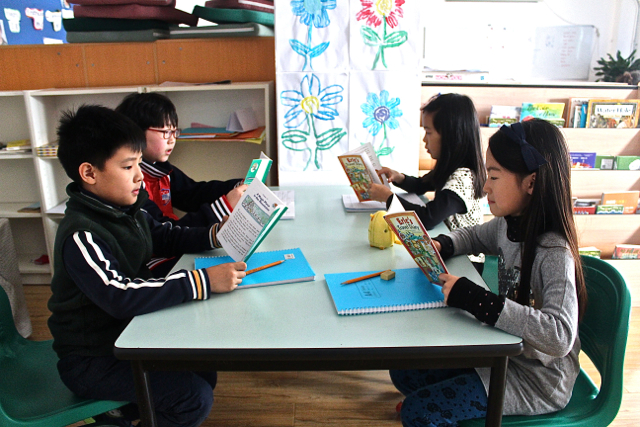
“Today a reader, tomorrow a leader.”
Margaret Fuller was the author of this quote; an American journalist, critic and active participant in the women’s right movement in her day. Whether or not we have a class full of future leaders, the value and enjoyment of accessing literature is key to so much of what we do in Grade 4,5 & 6. Students are grouped at various levels, following assessments, and engage in sharing books with each other and their teacher. As well as the actual process of reading, looking at strategies for deciphering unknown words etc. we look at the themes that are contained within books, the layout of different genres of literature and much else.
The interaction between students and their peers, the exchange of ideas and perspectives is as valuable as the comprehension of the text itself. Indeed, at the upper end of elementary, this is one of our goals; where literal understanding is a given and students have the opportunity to explore higher order thinking skills such as inference and empathy. The choice of books then provides the group the chance to discuss not merely the text but the issues and characters at a deeper level.
“Read and Respond” activities give the students a chance to engage with the text on a variety of levels in myriad ways. From written responses in their journals to carrying out activities in the class that give them more profound opportunities to consider events and characters. One such activity, which promotes empathy is “Conscience Corridor.” At a key part of a story, normally where a character has a decision to make, the class divides into 2 distinct groups. Each group persuades the character to go one of two, or more, ways. One student walks down the “Conscience Corridor” listening to the entreaties from both sides and then makes a decision. We then return to the book and see what the character does. Apart from the dramatic nature of this tool, it makes students put themselves in the midst of events taking place in the text and see the points of view of the characters.
Stories throw up real-life situations from issues that might daily affect students such as friendships, playground squabbles to more delicate themes they might be less aware of such as bullying, racism and poverty. Some might give them insights into different places, cultures and customs of peoples from around the world, others might give them new insights into styles of writing all the while contributing to them developing their own “voice” when it comes to their own writing and, perhaps more importantly, their world view. Indeed, in the words of the Nobel Prize winning Gao Xingjian:
“It’s in literature that true life can be found. It’s under the mask of fiction that you can tell the truth.”
